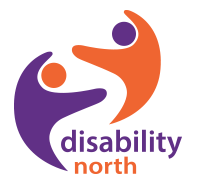The government’s flagship disability employment scheme has managed to sign up less than 80 private sector employers in more than three years to its highest accreditation level, new research has found.
When Disability Confident was relaunched in 2016, the scheme allowed employers to sign up even if they do not employ any disabled people at all.
And employers can reach the first two levels simply by assessing themselves on their own performance, after which DWP will send them a badge and a certificate that they can use to promote their “disability confidence”.
It is only if they want to become a Disability Confident Leader – the highest of the scheme’s three levels – that their self-assessment must be “validated” by another organisation.
DWP itself was declared a Disability Confident leader on 4 November 2016, just days before the UN’s committee on the rights of persons with disabilities found it guilty of “grave” and “systematic” violations of disabled people’s rights under the UN disability convention.
Now research by Professor Nick Bacon, of Cass Business School, and Professor Kim Hoque, of Warwick Business School, has revealed that less than 80 of the employers that have achieved the level of Disability Confident Leader (level three of the three-tiered scheme) are private sector employers.
The remaining 190 or so level three employers are voluntary or public sector organisations, many of them disability charities.
Of all 15,000-plus Disability Confident members, including those on levels one and two, less than half are private sector employers.
Bacon and Hoque point out that this shows only a tiny proportion of the 1.39 million UK private sector businesses that are not sole traders have signed up to the scheme, which is probably as low as 0.5 per cent of them.
They say the figures show that the government’s key “business case” argument for encouraging employers to sign up to Disability Confident – that it provides a wider talent pool, and allows them to recruit hardworking and committed staff, and enhance their reputation – appears to have had a “limited” impact.
Hoque and Bacon called on the government to make it mandatory for Disability Confident Leaders to report on how many of their staff are disabled people, and for this to be extended to level two members [those given the status of Disability Confident Employers].
Last month, Disability News Service reported that government plans to introduce mandatory reporting for Disability Confident Leaders was scrapped just days after it was announced.
The two academics also say Disability Confident Leaders should have to ensure that the percentage of disabled people within their workforce is substantially above the UK average, while Disability Confident Employers should have to ensure the proportion of staff that is disabled is at least equivalent to the UK average.
And they say the government should remove level two and three status from employers who persistently employ a higher than average proportion of disabled people at lower pay rates, unless they can provide a valid reason for doing so.
Bacon and Hoque say there is currently no evidence that level two and three Disability Confident members are any more likely to hire and retain disabled people than other employers, which means the scheme “rewards employers for public declarations of intention rather than for delivering outcomes”.
David Gillon, a prominent disabled critic of Disability Confident since its original launch in July 2013, said the study was a “really welcome piece of research”.
He said the findings were “a huge condemnation of Disability Confident, not just for the obvious reason, but because any professionally designed programme should have had this kind of benchmarking built in from the beginning.
“You don’t know if initiatives are working unless you collect data at the start, and then again later, in order to tell you, and Disability Confident never proposed collecting the needed data.
“The data on the devastatingly poor take-up of Disability Confident among private sector firms is something that has been needed, but hardly something that can be welcomed.
“And in some of these companies, such as recruitment agencies, there are non-disability related reasons that may have led to the take-up.”
He added: “Perhaps most devastating for Disability Confident is this: after three years, we are still counting private sector Disability Confident Leaders in single figures in all but one business sector (which has 10).
“And Disability Confident Leader is awarded for a level of disability access to work that is arguably less than that required by law.”
Sue Bott, head of policy and research at Disability Rights UK, which has also been shown the report, said it “makes interesting reading but comes as no surprise.
“The problem with the Disability Confident programme all along has been that it lacks teeth.
“We will be raising this with the new government after the general election.”
A DWP spokesperson was unable to comment on the new research because of the general election campaign.
5 December 2019. News provided by John Pring at www.disabilitynewsservice.com

